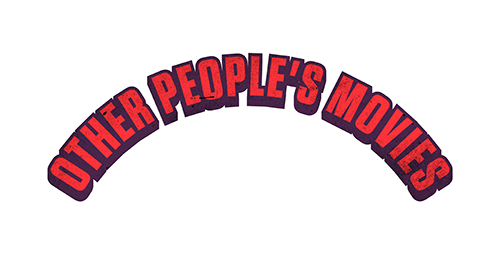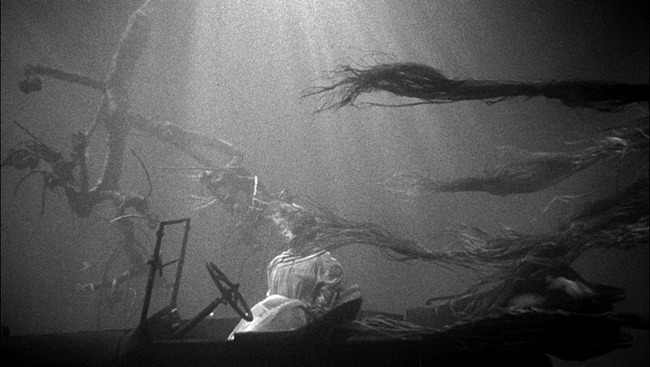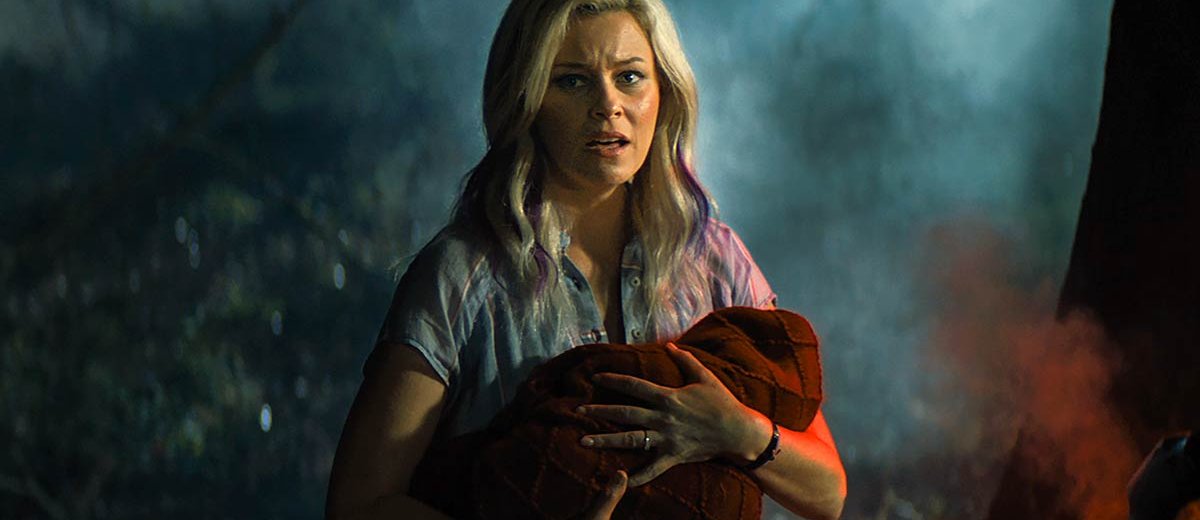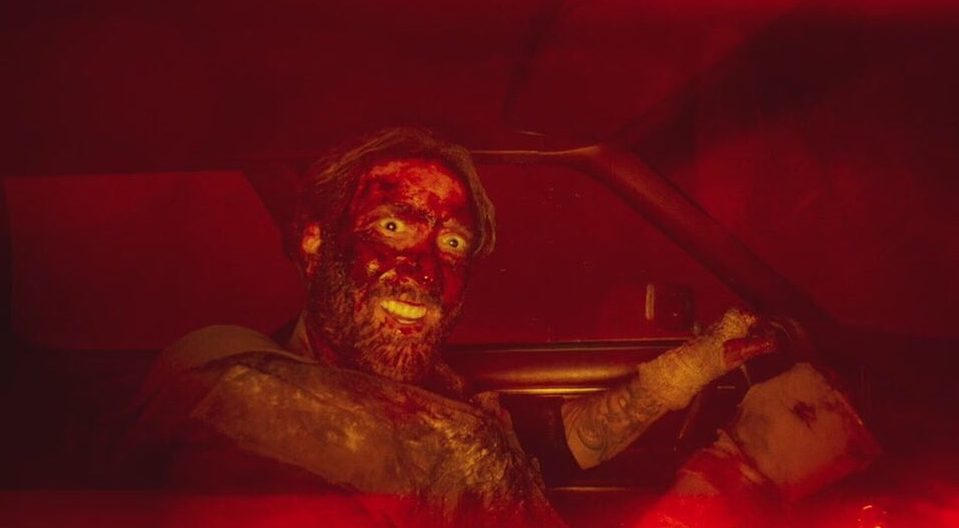
Everyone’s favorite actor to love or hate recently announced that he might be retiring in the next few years to focus on directing. The announcement came towards the beginning of 2018—one of the best years Nicolas Cage’s career has seen in a long time. Though it will be nothing short of tragic to see him go, it’s fitting that what could be the last leg of his acting career might also be his most memorable.
Cage rose to new creative heights in 2018. He may not rank in annual power lists or headline Bruckheimer blockbusters like he used to, but that kind of success is fleeting for anyone. The success Cage currently has is the kind that lasts—though it’s now more appreciated by a passionate few rather than an indifferent many.
Cage’s recent appearances in multiple lower-budget films have given him room to experiment and grow. When he’s not working under a microscope manned by powerful agents, managers, and producers, Cage takes his greatest risks. Sometimes they pay off, sometimes they don’t—but there’s nothing else on Earth like watching him try. Perhaps he needed to drop off the A-List in order to become the Nicolas Cage he was always meant to be.
With a Hollywood career spanning nearly forty years, Cage has experienced multiple ups and downs. If, indeed, his acting career is reaching its end, then 2018 proves it could very well be on a high note. Wildly varying in quality, the eight films in which he appeared last year range from forgettable genre efforts to major animated hits to instant cult classics—and everything in-between. Whether or not the final products match the talents of Hollywood’s most inventive and charmingly bizarre actor, there’s no denying that they all at least benefit from Cage’s wholehearted and off-kilter efforts.

1. Mom & Dad – U.S. Release Date: January 19, 2018
Cage started 2018 off with an appropriately insane bang in Mom & Dad. Written and directed by Brian Taylor (one-half of Cage’s Ghost Rider: Spirit of Vengeance directorial team sans Mark Neveldine), the film is an under-ninety-minute blast of chaos that Cage seems to be perfectly at ease representing.
The film’s premise is simple: parents everywhere are suddenly and inexplicably overtaken by the urge to brutally murder their offspring. Human instinct has turned on itself, and all the world’s children are forced to survive against their now-bloodthirsty parents.
Mom & Dad is every bit as insane as it sounds, moving at an adrenalized pace (not unlike the Taylor/Neveldine Crank films) that is as involving as it is exhausting. It works on a variety of levels–first and foremost as an action/horror blend full of shocks, scares, and suspense. It’s also an intelligent and astute satire about the conflicted feelings and loss of identity behind the life of any parent.
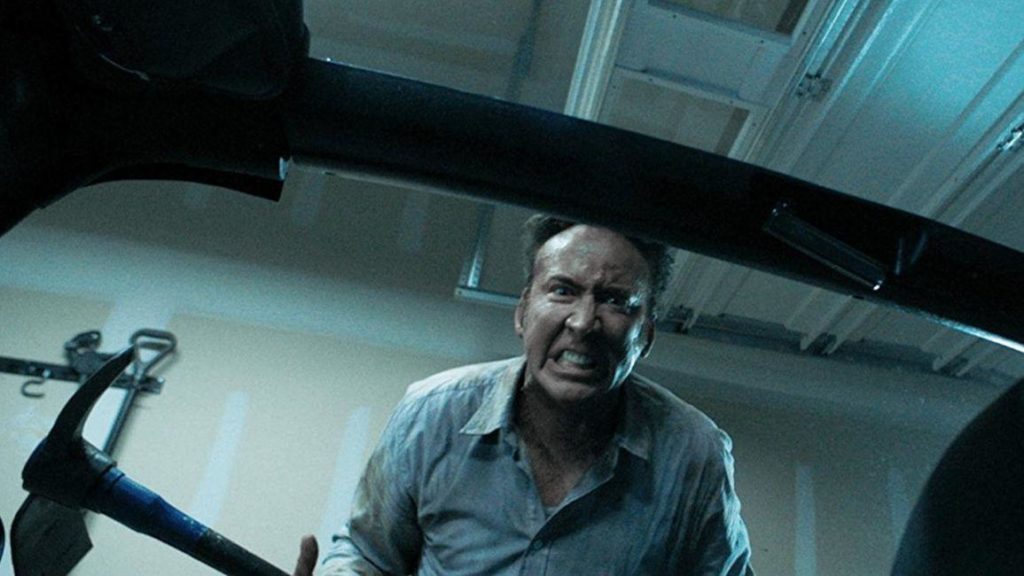
Cage’s performance is an unhinged, schizophrenic roller coaster. Reminiscent of the ingenuity and energy of his early work, Cage utilizes madcap vocal techniques and a disciplined, silent film era-like use of his body to convey the madness of his character. It is a truly demented representation of the parental id coming to life. His eyes bulge, his voice cracks, he barks like a dog, he takes far too much pleasure in curling his fist into a ball right before attacking… All of Cage’s insane ideas over the years seem to make some form of an appearance in Mom & Dad.
It’s a liberating performance in a film that is as thoughtful as it is bombastic. Like such early classics as Vampire’s Kiss or Wild at Heart, Mom & Dad is a film that not only demands Cage’s presence, it is elevated to entirely new heights because of it.
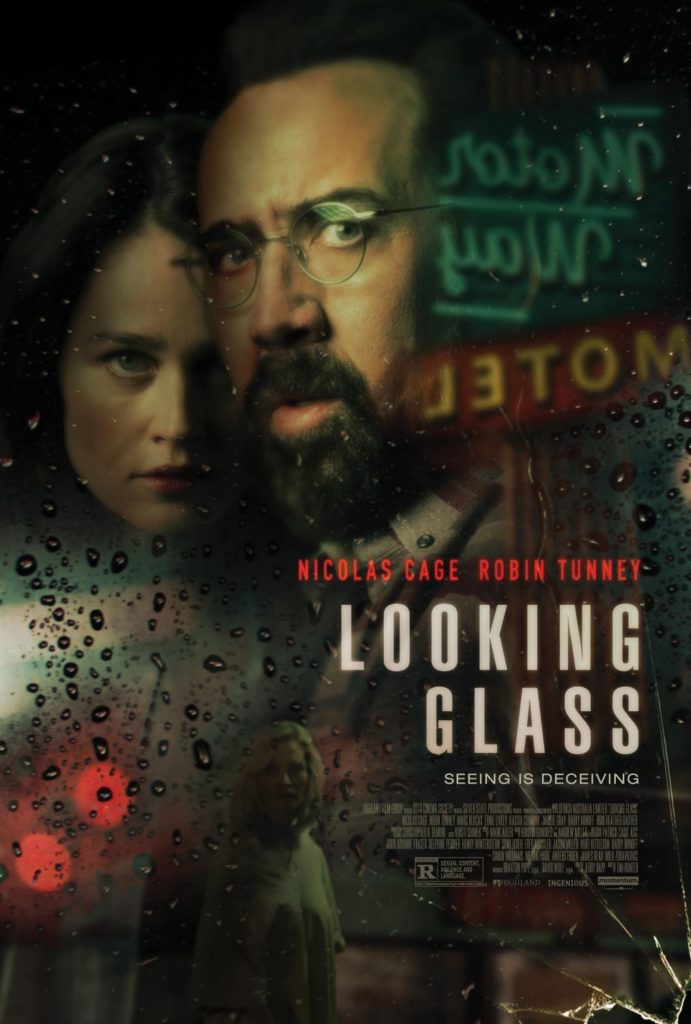
2. Looking Glass – U.S. Release Date: February 16, 2018
In Looking Glass, Cage plays a man who has recently relocated to a small desert town where he and his wife (Robin Tunney) are set to run the local motel. Hoping to restart their lives after losing their daughter in an accident, they instead find themselves caught up in a murder mystery involving voyeurism, prostitution, small-town secrets, and police corruption.
Looking Glass is a bit of a letdown considering the potential dream pairing of Cage and River’s Edge director Tim Hunter—but it’s not a bad movie. Taking it solely for what it is, the film is a solid and atmospheric thriller that rises above its low-budget trappings. Hunter creates a particularly strong set-up where the stifling aura of the small town slowly envelops Cage’s character and creates a paranoid, though often quirky, sense of impending doom for the audience.

The set-up makes the film’s weak climax all the more disappointing, however. A generic throw-down between good and evil ends abruptly with far too many underdeveloped ideas for the film to pass of as intentionally ambiguous rather than undeniably sloppy.
Cage helps make up for it with his performance. He is as equally aroused as he is horrified by the mystery that takes over his life–and the conflicting dynamic is portrayed with thought and typical passion by the actor. He also gets to let loose in a way Nicolas Cage only can from time to time, most notably in a scene where he hits a guy with the butt of his gun in a bar fight, then struggles to smoke the cigarette in his hand afterwards.
All in all, Looking Glass has enough going for it to be worth your time—even if it isn’t the noir masterpiece it could have been considering the talent behind it.
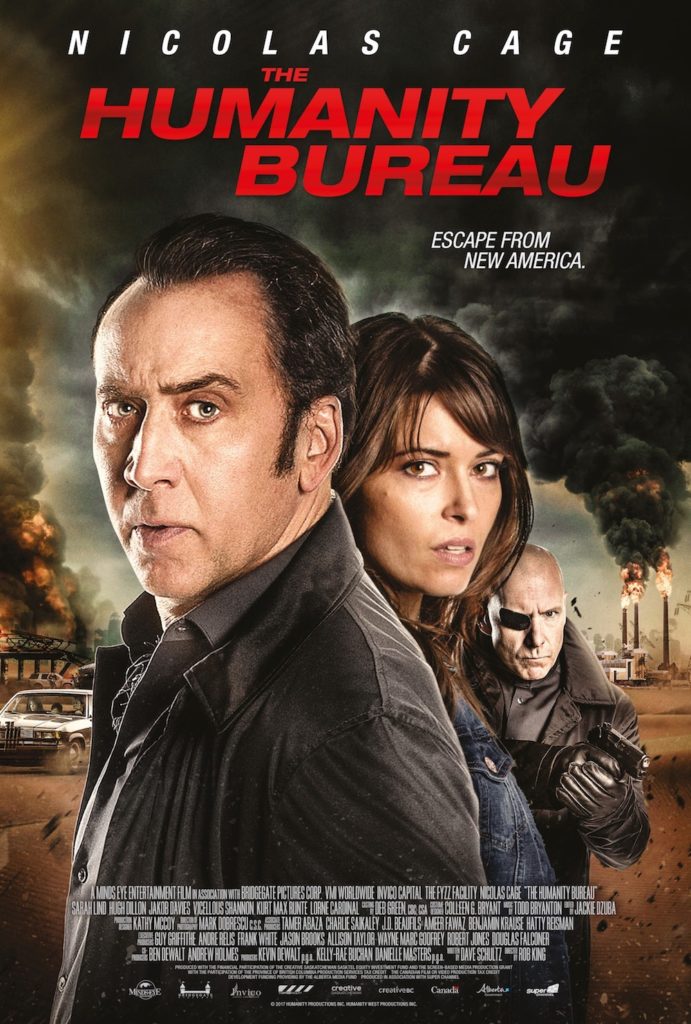
3. The Humanity Bureau – U.S. Release Date: April 6, 2018
The Humanity Bureau is a surprisingly watchable science-fiction thriller about a futuristic world in which a government-controlled group (see title) decides who is “productive” and who is a “burden to the system”. The select few who are deemed productive get to survive in a resource-depleted world—even fewer of them with wealth and privilege. The many who are deemed a burden get shipped off to a mysterious place referred to as New Eden, which, as we come to discover, isn’t nearly as heavenly as it sounds.
The film struggles with budget restraints, sure—particularly in its forgettable and clumsy attempts at action. Where it succeeds, however, is in its ideas, its characters, and its cast.

Playing a representative of The Humanity Bureau who has a change of heart, Cage exhibits his character’s inner conflict beautifully. The arc of his character is well handled with nuanced emotions instead of becoming easily—and sloppily—maudlin.
As with many of his recent performances, Cage conveys a type of introspection in The Humanity Bureau that he never perfected in his youth. His chemistry with actors Sarah Lind and Jakob Davies (who portray the endangered mother/son catalysts for Cage’s spiritual awakening) is relaxed, effortless, and as just as effective as some of the loudest and most intense moments on his resume.

4. 211 – U.S. Release Date: June 8, 2018
Cage supposedly wanted to make this film ever since he first read the script in 2014. Whatever happened to that script between then and the film’s release is a mystery. Perhaps breaking his ankle on set sent the production into disarray—though it’s doubtful the accident could have had such an impact. 211 is the kind of movie that’s so inherently bad you simply can’t picture it existing any other way.
In 211, Cage plays one of many cops who interrupt a bank robbery being pulled off by mercenaries (one of whom is portrayed by Cage’s first-born son, Weston). The film is nothing if not ambitious, as it sprawls through multiple subplots about the intersecting lives of the different characters involved.
211 attempts to do far too much with too few resources–and next-to-nothing succeeds about it. For a film with so many characters, it would be nice to care about any of them. For a film with so much action, it would be nice to see it executed in any other way than a series of random, generic shots that struggle to edit together with any kind of cohesiveness. If the filmmakers had accommodated their budget by excising characters or set pieces, it might have had a chance at some form of success.

Cage is the movie’s only saving grace—though he often appears at a loss on what to do throughout most of it. Surrounded by a cast of largely inexperienced actors, Cage is primarily stoic throughout most of the film, quietly reacting to performances that simply aren’t there.
The strongest scene in the film is a quiet one in which Cage has a conversation with a teenage ride-a-long (Michael Rainey Jr.) about bullying. The actors listen to each other, react, and have a nice, human moment of connection that isn’t forced or clumsily awkward. If only the rest of the movie didn’t do the exact opposite of this one standalone scene…
Cage has seen far better days than 211, but the great thing about his career is that it can survive abysmal attempts like this and immediately go onto much better things like it never even happened.

5. Teen Titans Go! To the Movies – U.S. Release Date: July 27, 2018
Cartoon Network’s hit animated series– which put a new comedic spin on superhero sidekicks– got the theatrical treatment last year with Teen Titans Go! To the Movies. A minor cult family hit, the movie is a silly and entertaining experience that simultaneously spoofs and celebrates superhero movies.
Tired of being slighted, Batman’s forever sidekick Robin decides he deserves to headline his own feature movie. He and the other Teen Titans use time travel to rid the world of superheroes for their own gain—with predictably disastrous results.
In the movie, Cage hilariously voices an arrogant, vain, and slightly douche-y version of Superman. He condescends to Robin when explaining what a real superhero is and why he’ll never be one, laughs a maniacal Nicolas Cage laugh when Robin is humiliated at Batman’s latest movie premiere, and sports his own John Williams-scored musical theme as his cellphone ringtone. Cage reportedly had a blast playing the role, which is as obvious as it is contagious to the film’s audience.

Comedic value aside, Teen Titans Go! To the Movies finally allowed Cage to realize his long-held dream of portraying the Man of Steel. As many know, one of the biggest disappointments of his career happened in the late-90’s when Cage’s and director Tim Burton’s Superman Lives was cancelled shortly before the beginning of production. While Teen Titans Go! To the Movies probably isn’t the best representation of what he and Burton were going to do with their legendary unmade, it at least offers some closure for fans and, one can hope, for Cage himself.
Fun fact: Cage’s second-born son, Kal-El, was named after Superman. Kal-el also makes a vocal appearance in the film as a young Bruce Wayne.
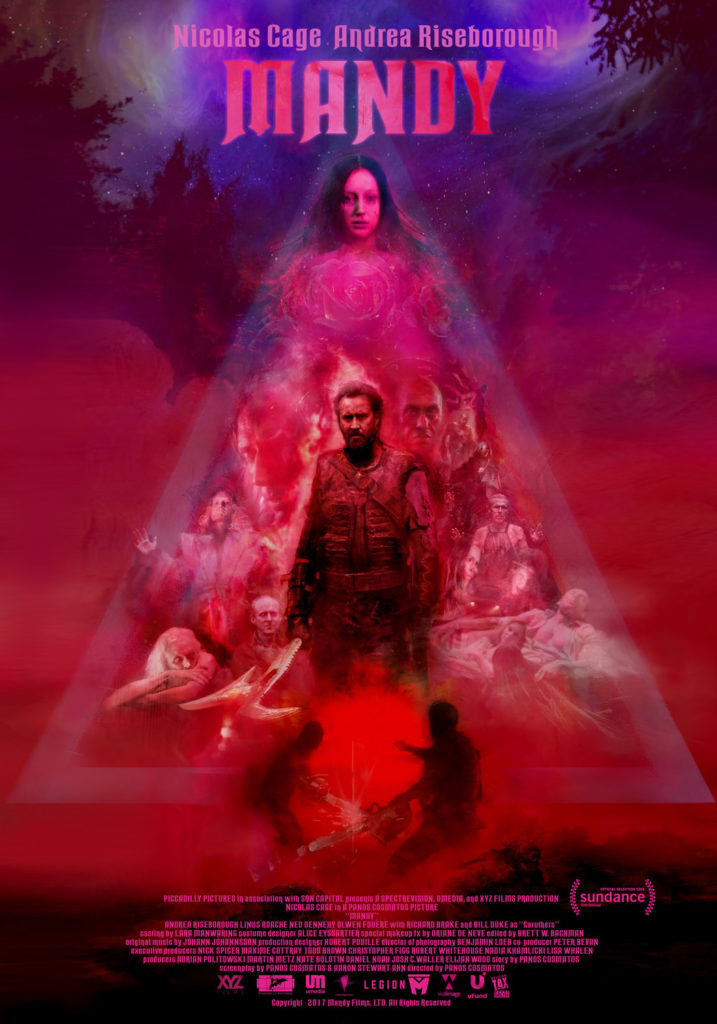
6. Mandy – U.S. Release Date: September 14, 2018
Mandy is the simplest of stories told in the most complex of ways–a B-movie with art film aesthetics. Cage plays Red, a lumberjack who lives an ethereal life in the woods with his artist girlfriend (Andrea Riseborough), Mandy. Their world is shattered when Mandy dies a brutal death at the hands of cult leader Jeremiah Sand (Linus Roache) and his followers. Red then takes vengeance, and the film becomes a brutally psychedelic head trip/revenge fantasy/meditation on loss that is as much an exercise in style as it is symbolic of… well, something bigger than itself.
Mandy lives in its own reality and works with its own logic. It’s a death metal poem brought to life: passionately violent, intensely focused, and beautifully aggressive in its execution. On an emotional and aesthetic level, it makes perfect sense. On a logical one, there are a number of routes to take, but they all lead to interpretations that are as ambiguous as Mr. Sand’s sexuality. It’s a wholly original experience with a singular vision by cowriter/director Panos Cosmatos.
What other actor alive could exhibit these qualities more than Nicolas Cage?
Co-producer Elijah Wood (Cage’s costar in the underrated The Trust) first offered him the role of Jeremiah Sand—the Christian acid worshiper/cult leader/rapist/murderer/wannabe-musician. While Cage would have been an interesting choice, he was wise to hold out for Red. His presence is simply too familiar to be as effective and disturbing as Linus Roache’s (a relative unknown) is as Jeremiah. Within the dynamics of the film, Cage would have been too much of a good thing as the villain. As the “hero” of a film whose logic and design is as bent as this one, however, he’s just right.

Like Mom & Dad, Mandy feels like a culmination of strengths developed by Cage in his early work. His performance in Mandy expands upon this by drawing on the maturity and stillness he discovered much later in his career, as well. The Nicolas Cage of today knows how to hold back as much as he knows how to let loose—and the film provides him with plenty of opportunities to do both.
For Mandy’s first half, everything about Cage’s performance is internal. When he’s at work, he’s quietly focused and determined—doing a man’s man job with stoicism and integrity. When he’s alone with Mandy, he’s more peaceful and playful—but always grounded and quiet in his reactions. He watches Mandy with a gaze that would almost read as expressionless if his eyes weren’t so full of awestruck wonder at the sight of her.
As the film rises in intensity and insanity, Cage’s performance matches it twofold. His already-classic breakdown after Mandy’s murder, his bug-eyed Bruce Lee homage after snapping a man’s neck, his Nicolas Cage-twanged line delivery of “you ripped my favorite shirt!” in the middle of a brutal fight, pronouncing himself a god while crushing a man’s skull— there are enough gargantuan moments of pure off-the-wall craziness in Mandy that it would make the actor’s mid-20’s-cockroach-eating-self green with envy.
Mandy is the best of many worlds when it comes to Nicolas Cage. It not only highlights where he’s been and where he’s at, it points to where he’s going and what he could still accomplish.

7. Spider-Man: Into the Spider-Verse – U.S. Release Date: December 14, 2018
Some months after the release of Teen Titans Go! To The Movies, Cage’s vocal talents appeared in yet another animated feature about superheroes. In Spider-Man: Into the Spider-Verse, he voices Spider-Man Noir—a darker, black-and-white take on the web slinger who comes from the time of the Great Depression.
Into the Spider-Verse is a clever, gorgeously animated effort that features a new Spider-Man (Mile Morales as voiced by Shameik Moore) taking over the reigns. In this story, Miles crosses paths with Spider-Men from other dimensions (Spider-Ham, Spider-Gwen, Peni Parker, Peter Parker, Peter B. Parker, and Cage’s Spider-Man Noir) to fight a common enemy. While the film is groundbreaking in its presentation (it looks like comic book art brought to life), it focuses too heavily on yet another Spider-Man origin story–and not enough on its inventive selection of side characters—to be something truly special.
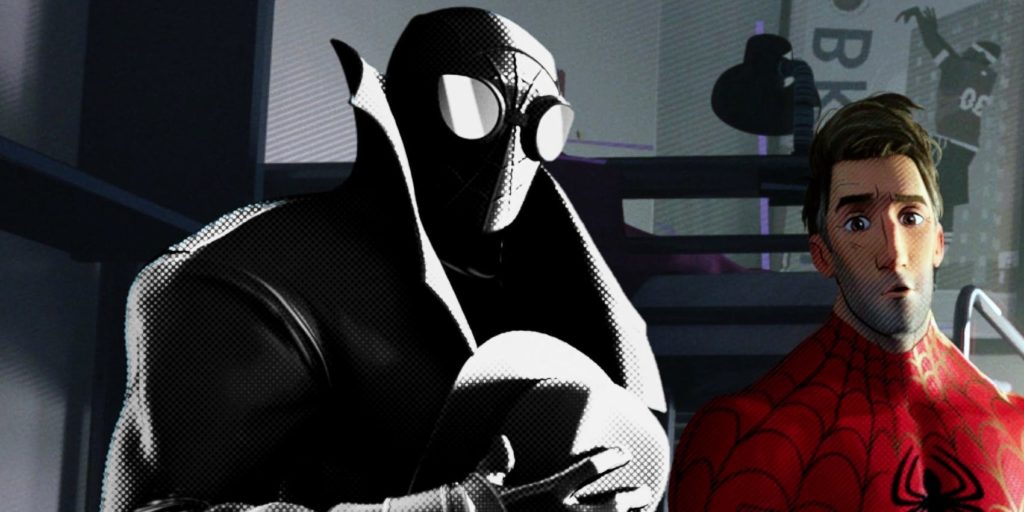
Though Cage is underused, he still manages to stand out. Cage brings humor to the humorless and literal-minded Spider-Man Noir by playing him with a dry, ironic wit. He has fun with the character’s near-monotone and over-serious line deliveries. The brooding tough-guy act is just overdone and just over-serious enough to bring laughs, but not so much that he becomes a one-dimensional joke. The only real fault to the character, if there is one, is that you can’t help but crave more of him.
Still, it’s great for Cage’s name to be attached to any blockbuster of Into the Spider-Verse’s size since it pays the way for more mind-blowing efforts like Mandy or Mom & Dad. One could also hope, with the notice and praise he has received for such a minimal role, that we might just get to hear Cage voice his very own Spider-Man Noir-centered movie in the not-too-distant future.
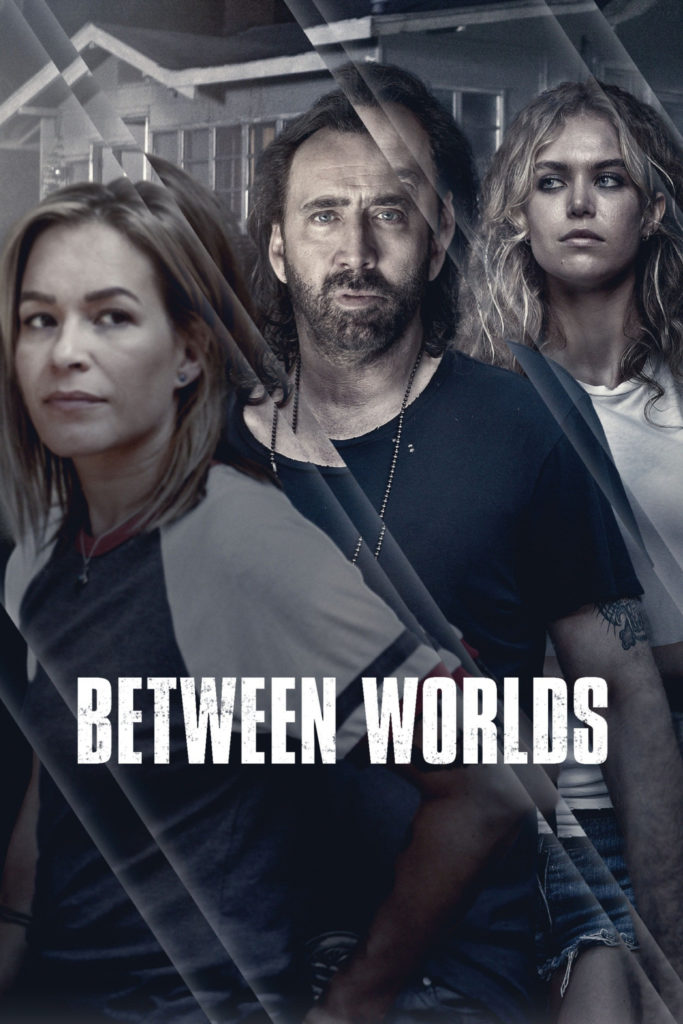
8. Between Worlds – U.S. Release Date: December 21, 2018
Between Worlds revolves around a woman (Run Lola Run’s Franka Potente) who is able to contact spirits in the afterlife when she herself is near-death. While trying to help her close-to-dying daughter (Penelope Mitchell), a hapless truck driver (Cage) intervenes. Due to his interference, the daughter’s spirit is stuck in the afterlife while the femme fatale ghost of Cage’s deceased wife uses her body as a host. A very confused Cage eventually beds both (all three?) of them. Needless to say, Cage’s wife isn’t in a rush to return to death and decides to capitalize on her opportunity for a second life.
Between Worlds is every bit as sleazy, schlocky, and silly as it sounds–but it does manage to close Cage’s impressive year on an appropriately bizarre and outlandish note. While it is a clumsy film that fails to tell an involving or cohesive story, it succeeds by hosting a set of memorable and bizarre characters brought to life by some lively, if somewhat undisciplined, performances—with Cage’s predictably being the most off the rails.
From a technical standpoint, Between Worlds feels like a student film. Many shots don’t edit together particularly well and there is a rushed, unrefined nature to most of its staging. Also like a student film, however, there is an earnest and passionate charm to Between Worlds that prevents it from being a completely wasted effort.

All of the actors give fresh, vivacious performances that are odds with the film’s awkward presentation. Writer/director Maria Pulera has a genuine gift for pulling spontaneous and playful moments out of her actors—she just needs a little guidance and practice elsewhere. In spite of its many faults, the film still maintains a quirky, colorful charm at its core that is no doubt a benefit of her unique touch.
Cage is as wild as he’s ever been in Between Worlds. It doesn’t appear that the word “no” was something he heard too often while making it. He plays the character of Joe with a goofiness that is usually reserved for comedy, but commits to his tragedy so fully that Cage still manages to create a complete and satisfying dramatic character out of him. His softer scenes with Potente are breezy and fun, showcasing Cage at ease with an actress with whom he shares a genuinely palpable chemistry. He also gets to go to some extreme levels of Nicolas Cage-ness, particularly in a bizarre montage where he has sex with his wife (and the body that hosts her spirit) while reading from a book of poems called Memories written by none other than… Nicolas Cage.
Cage appears to be having a lot of fun in Between Worlds. While it’s not a particularly good movie, it is an interesting and memorable one made all the more so by Cage letting lose and seemingly not caring about the consequences. At the end of the day, isn’t that all we want from a Nicolas Cage movie, anyway?
